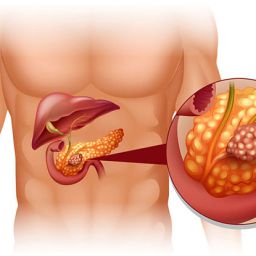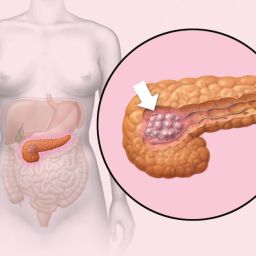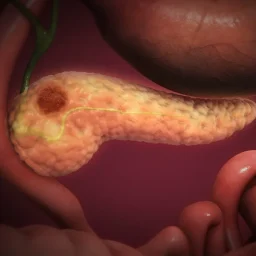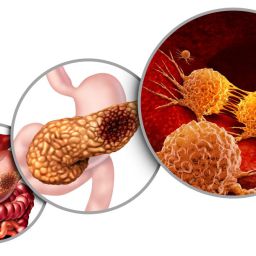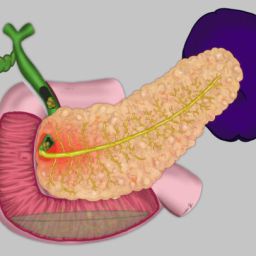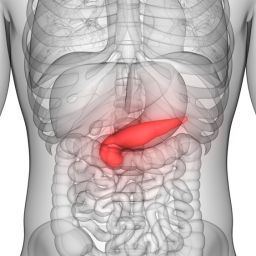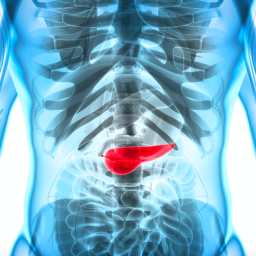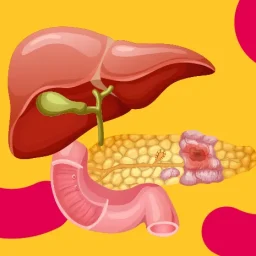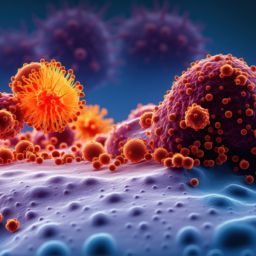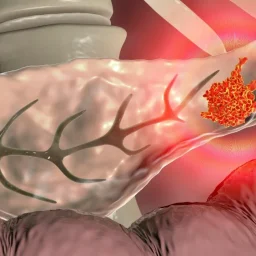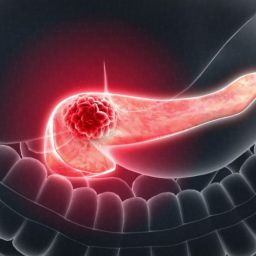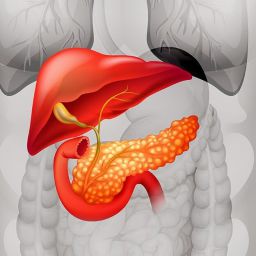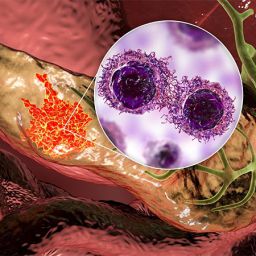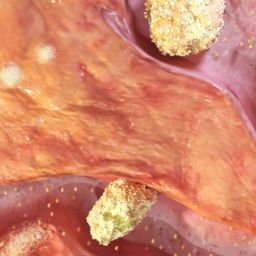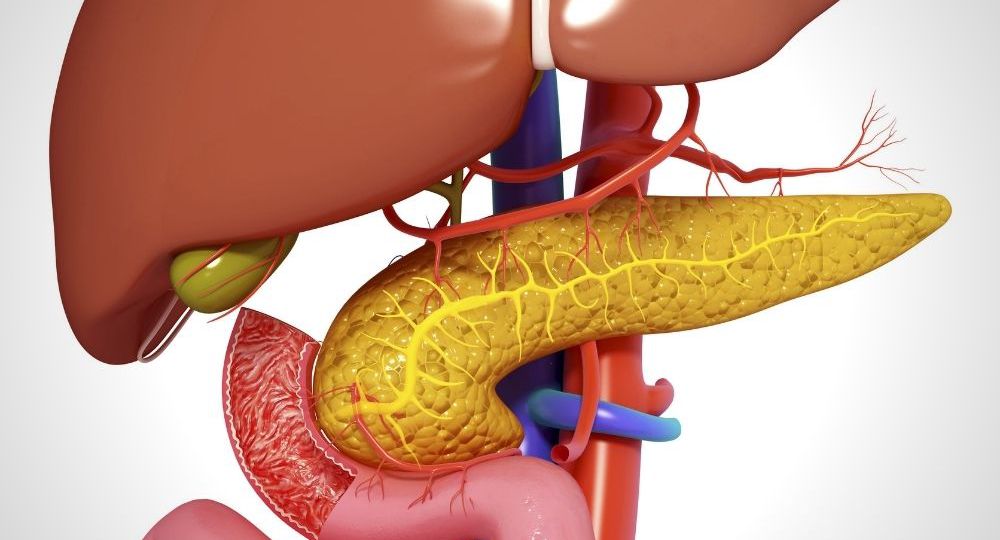
Pancreatic Cysts
Before discussing their potential effects on the immune system, it’s important to first understand what pancreatic cysts are. These cysts form within the pancreas, which is an essential organ that aids in digestion and helps regulate blood sugar levels.
There are two broad categories of pancreatic cysts:
- Non-Neoplastic Cysts: These cysts are not cancerous and typically do not carry a risk of malignancy. Examples include pseudocysts, retention cysts, and simple cysts. They are often associated with chronic conditions like pancreatitis.
- Neoplastic Cysts: These cysts, including mucinous cystic neoplasms (MCNs) and intraductal papillary mucinous neoplasms (IPMNs), can be benign but have the potential to become malignant, leading to pancreatic cancer. This is why they require careful monitoring.
Although many pancreatic cysts are benign and may not pose a direct risk to the immune system, understanding how they interact with the body’s defense mechanisms is vital.
2. The Immune System’s Role in Health
The immune system is a complex network of cells, tissues, and organs that work together to defend the body against harmful invaders, including pathogens, infections, and cancers. Its primary components include white blood cells (such as T cells and B cells), antibodies, lymph nodes, and organs like the spleen and bone marrow.
When the immune system is compromised or weakened, the body becomes more susceptible to infections and diseases. A weakened immune response can occur for various reasons, including:
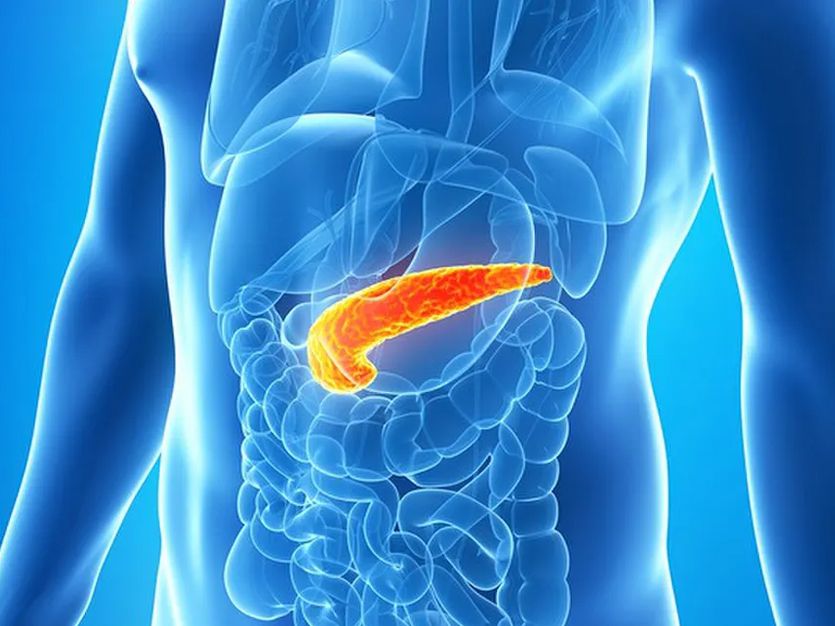
- Chronic Inflammation
- Autoimmune Diseases
- Immunosuppressive Treatments (e.g., chemotherapy)
- Nutrient Deficiencies
With this understanding, it becomes important to consider whether pancreatic cysts, particularly those that lead to chronic inflammation or other complications, might have an impact on the immune system’s function.
3. Can Pancreatic Cysts Affect the Immune System?
At first glance, pancreatic cysts may not seem directly linked to immune system suppression. However, certain factors associated with the formation of pancreatic cysts can influence immune function.
3.1. Chronic Inflammation and Immune System Disruption
One of the key factors to consider is the chronic inflammation caused by conditions such as pancreatitis, which can lead to the formation of pseudocysts. Chronic inflammation has been shown to suppress the immune system in various ways:
- Immune Cell Exhaustion: Persistent inflammation can exhaust immune cells, leading to their diminished ability to respond effectively to infections or tumors.
- Cytokine Imbalance: Inflammatory conditions can lead to an overproduction of cytokines, signaling molecules that regulate immune responses. An imbalance can weaken the immune system and promote disease progression.
In the case of pancreatic pseudocysts, which are typically a result of acute or chronic pancreatitis, the inflammatory environment can impair the immune response, leading to increased vulnerability to infections and other complications.
3.2. Autoimmune Reactions
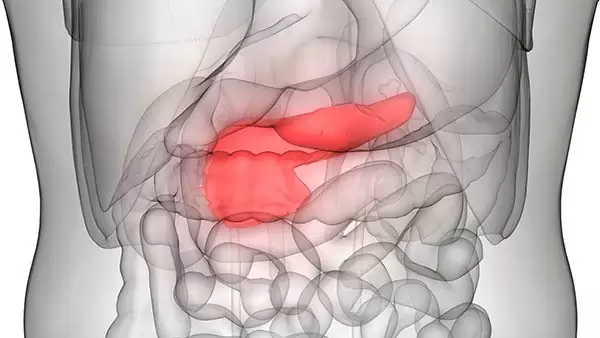
In some instances, pancreatic cysts may be associated with autoimmune pancreatitis (AIP), a rare form of chronic pancreatitis where the immune system attacks the pancreas. This condition can lead to the formation of cystic structures within the pancreas, and the ongoing autoimmune response can weaken the body’s overall immune function.
When the immune system targets healthy tissue, it can cause widespread inflammation and impair the body’s natural ability to fight off pathogens. In autoimmune pancreatitis, the immune system’s focus on the pancreas may divert resources away from other vital immune functions, putting the body at greater risk of infections.
3.3. Cyst-Related Infections
In some cases, pancreatic cysts themselves can become infected, leading to an additional strain on the immune system. Infection of a pancreatic cyst can result in complications such as:
- Abscess Formation: When a cyst becomes infected, it can develop into an abscess, which is a pocket of pus that contains bacteria, dead tissue, and immune cells. Abscesses can spread infection to surrounding tissues and organs, further taxing the immune system.
- Sepsis: If an infected pancreatic cyst is not treated promptly, the infection can spread throughout the body, leading to sepsis, a life-threatening condition where the immune system’s response to infection becomes dysregulated.
In these situations, the immune system must work harder to fight the infection, which may lead to weakened immune responses in other areas of the body.
4. The Impact of Pancreatic Cancer on the Immune System
For patients with neoplastic pancreatic cysts, such as mucinous cystic neoplasms (MCNs) or intraductal papillary mucinous neoplasms (IPMNs), there is an additional concern regarding the potential for malignant transformation. Pancreatic cancer is known for its ability to evade the immune system, further compromising the body’s ability to fight off other diseases.
- Immune Evasion by Tumors: Cancer cells can develop mechanisms that allow them to evade immune surveillance. This can lead to the suppression of immune responses, allowing the cancer to grow and spread unchecked.
- Tumor-Induced Immunosuppression: The presence of a tumor can induce an immunosuppressive microenvironment, where immune cells are either inhibited or exhausted, making it harder for the body to mount an effective defense.
In patients with pancreatic cysts that are pre-cancerous or malignant, the risk of immune system suppression is heightened, especially as the disease progresses.
5. Treatment Side Effects and Immune System Suppression
Patients with pancreatic cysts that are linked to pancreatitis or cancer may undergo treatments such as surgery, chemotherapy, or radiation therapy. These treatments can directly affect the immune system:
- Chemotherapy and Radiation: Both chemotherapy and radiation therapy are known to suppress the immune system by killing or damaging immune cells. This makes patients more vulnerable to infections and other complications.
- Surgical Interventions: Surgery to remove a cyst or tumor may result in an immune response that involves inflammation and stress on the body, temporarily weakening the immune system.
Thus, while treatment is essential for managing pancreatic cysts, it’s important to understand the potential impact on immune function and take steps to mitigate these effects.
6. Prevention and Management of Immune System Risk in Pancreatic Cyst Patients
While pancreatic cysts can potentially affect the immune system, there are several strategies that can help minimize these risks:
6.1. Early Diagnosis and Monitoring
Regular monitoring of pancreatic cysts, especially neoplastic cysts, is essential for detecting potential complications early. Imaging techniques such as MRI, CT scans, and endoscopic ultrasound can help assess cyst characteristics and detect signs of malignancy or infection.
6.2. Managing Inflammation
For patients with chronic pancreatitis or autoimmune pancreatitis, managing inflammation is crucial. Anti-inflammatory medications and lifestyle changes, including a healthy diet and avoidance of alcohol, can help reduce the impact of inflammation on the immune system.
6.3. Infection Control
Prompt treatment of pancreatic cyst infections is essential to prevent sepsis and other complications. Antibiotics and, in some cases, drainage procedures may be necessary to address infected cysts and minimize the strain on the immune system.
6.4. Immunotherapy and Supportive Care
For cancer patients or those undergoing treatment for malignant cysts, immunotherapy and supportive care may help boost immune function. Nutritional support, vitamin supplementation, and medications that enhance immune response can aid in mitigating the impact of treatment on the immune system.
Pancreatic cysts, while often benign, can influence the immune system in various ways, especially when associated with chronic pancreatitis, autoimmune responses, or malignancy. In some cases, cysts can directly impact immune function by triggering inflammation, infections, or immune system exhaustion. For patients with neoplastic cysts or those undergoing treatment for pancreatic cancer, the immune system may be further compromised, increasing the risk of infections and other complications.
Early detection, careful monitoring, and appropriate treatment are crucial for minimizing the impact of pancreatic cysts on the immune system. By managing underlying conditions, addressing infections promptly, and supporting immune function through therapy, patients can reduce their risk and improve their overall health outcomes.

